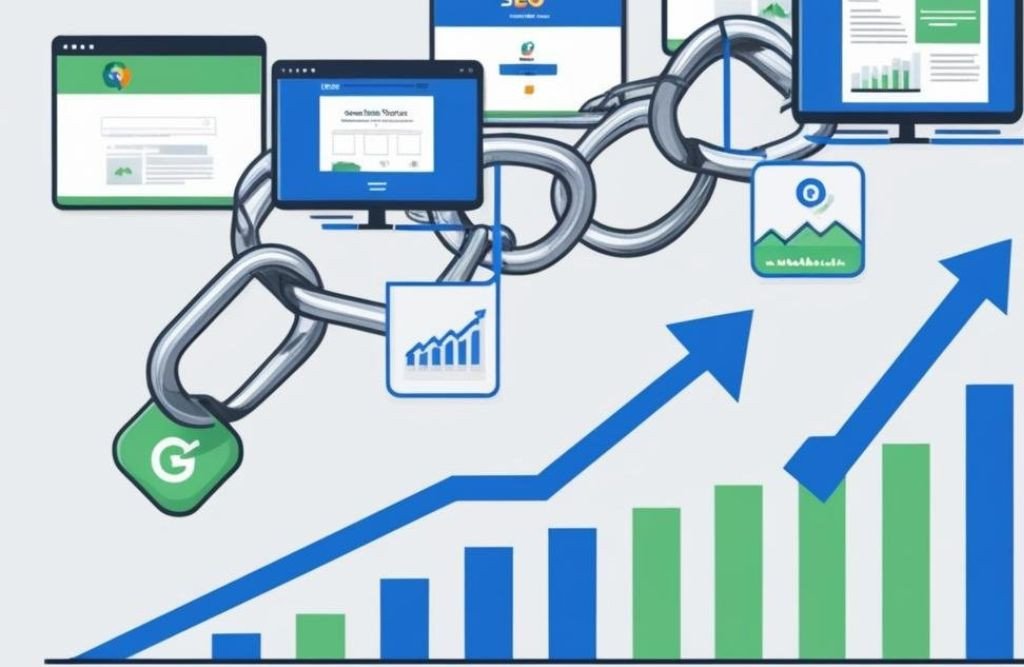
-
May 26, 2025
What Precautions Should We Take While Creating Backlinks?
Link building is a crucial component of Search Engine Optimization (SEO). It refers to the process of acquiring hyperlinks from other websites to your own. A hyperlink (commonly called a "link") allows users to navigate between pages on the internet. Search engines like Google use these links to crawl the web, discover new pages, and determine how pages should rank in search engine results pages (SERPs). Link building is not just about the quantity of links, but more about quality, relevance, and authority.
What is Backlink ?
A backlink is a hyperlink from one website to another. It acts as a vote of confidence, signalling to search engines that the linked site is trustworthy and valuable. High-quality backlinks from relevant, authoritative sites can improve a website’s visibility, search engine ranking, and drive more organic traffic.
There are several types of link building techniques:
Natural links: Given naturally by other websites without any action on your part.
Manual Outreach links: Acquired through reaching out to website owners or bloggers.
Self-created links: Created by adding a backlink in an online directory, forum, and blog comment, etc. (These are now often considered low quality or spammy if overused.)
The Role of Link Building in SEO
Google’s algorithm considers backlinks as one of its top-ranking factors. When a webpage has many high-quality backlinks, it typically ranks higher in search results. This is because backlinks act like “votes” for the content’s credibility and usefulness.
How link building impacts SEO:
Improves Organic Ranking
Backlinks from authoritative websites increase a page's chances of ranking higher in SERPs. Google sees these links as a sign that the content is useful and relevant.
Faster Indexing
Search engine bots use links to discover new web pages. If your page is linked from other indexed pages, it will likely be discovered and indexed faster.
Referral Traffic
Backlinks can drive traffic from external websites. If users find a link to your site on another website, they may click on it, bringing in potential leads or customers.
Builds Authority
Consistent backlinks from reputable sources help build your website’s domain authority, making it easier for your new pages to rank well.
What Google Looks for in a Good Backlink?
Google uses several signals to determine the quality of a backlink:
- Relevance: Is the linking page related to the content it's linking to?
- Authority: Does the linking domain have high authority or trustworthiness?
- Anchor Text: Is the anchor text relevant and natural?
- Placement: Is the link within the main content or buried in the footer/sidebar?
- Traffic: Does the linking page get actual user traffic?
Precautions While Creating Backlinks
If you're new to SEO and link building, it's important to understand that link building is a long-term strategy, not a shortcut. Here are key precautions every beginner should take to avoid common mistakes and penalties from search engines like Google:
Avoid Buying Links
Buying backlinks from shady sources might give quick results, but it violates Google’s Webmaster Guidelines. If you're caught, your site could face manual penalties or lose ranking.
Precaution: Always earn links naturally through valuable content and ethical outreach.
Don’t Rely on Quantity Over Quality
One high-quality backlink from an authoritative and relevant website is more valuable than 100 low-quality links. Poor-quality backlinks can hurt your SEO.
Precaution: Focus on getting links from sites with high domain authority and industry relevance.
Be Careful with Anchor Text
Using the same exact-match keyword as anchor text too often can trigger Google’s spam filters.
Precaution: Use a natural mix of anchor texts like branded, generic (e.g., “click here”), and long-tail phrases.
Stay Away from Link Farms and PBNs
Private Blog Networks (PBNs) or link farms are manipulative schemes. Google actively deindexes such networks and penalizes sites connected to them.
Precaution: Build links through trustworthy websites only. Avoid shortcuts.
Don’t Spam Blog Comments or Forums
Dropping your website link in blog comments or forums just for SEO can be seen as spam.
Precaution: Only engage in discussions where your input adds real value. If you include a link, it should be helpful, not promotional.
Monitor Your Backlink Profile
Sometimes, low-quality or toxic backlinks can point to your site without your knowledge, especially in negative SEO attacks.
Precaution: Use tools like Google Search Console, Ahrefs, or SEMrush to monitor your backlink profile and disavow bad links if necessary.
Don’t Overdo Guest Posting
Guest blogging is effective when done right. But overusing it with low-quality content or on irrelevant sites can backfire.
Precaution: Choose authoritative sites in your niche and write high-quality, original content.
Keep Link Building Natural
Google's algorithm is very good at detecting unnatural link patterns.
Precaution: Build links gradually. A sudden spike in backlinks may appear suspicious.
Focus on Relevance
Links from unrelated niches don’t carry much value and can confuse Google about your content’s context.
Precaution: Only seek backlinks from sites relevant to your topic or industry.
Stay Updated with Google Guidelines
SEO is constantly evolving. What worked last year may not work today.
Precaution: Follow Google’s official Webmaster Guidelines and stay informed about major algorithm updates.
Trendy Digital Academy is Digital Marketing Training canter which offers digital marketing training online & Offline both. For any backlinks or SEO related query, you can send your query to Trendy Digital Academy. We will get back to you.
